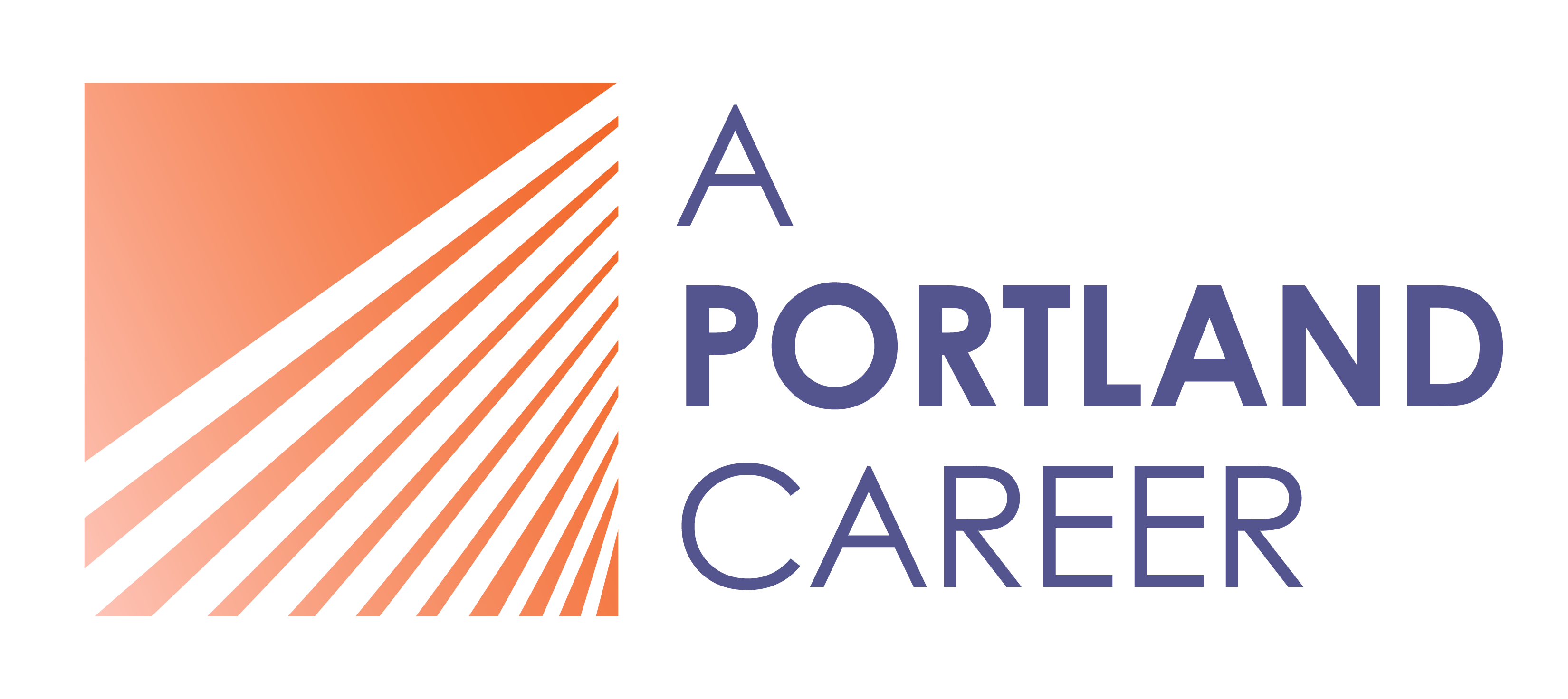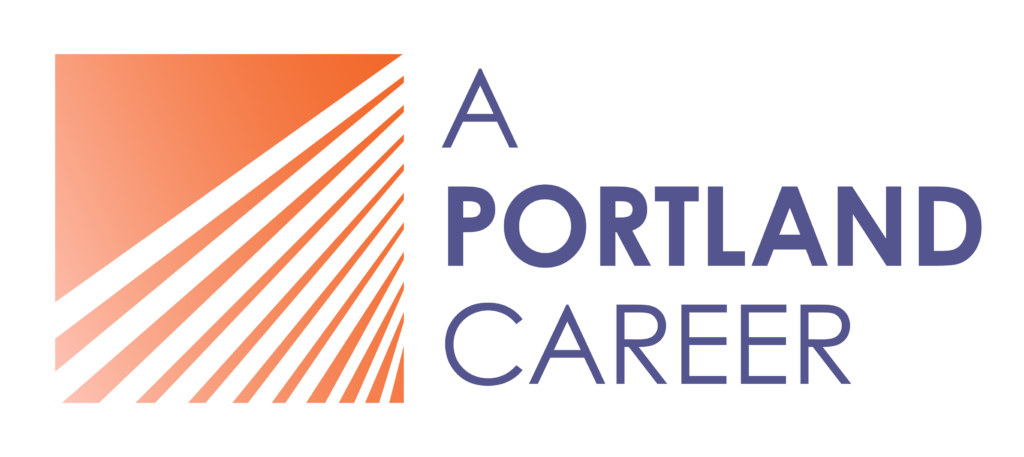“Overqualified” just means “well-qualified.” Let’s debunk the myths about overqualified candidates and reframe your career story!
Ageism in hiring is real, so you’ve got to game it out. Here are the tools you need to find age-friendly employers and age-proof your LinkedIn, resume, and interviews.
How to Game Your Job Search Over 50
By A Portland Career, and edited by Suzie Sherman and JD Duran
Need support on your job search? We can help!

Vicki’s story: Vicki was in her fifties when she began a new job search. She needed a part-time job with benefits while she worked on her passion project: building her career counseling practice. Despite her own expertise in the job search process, she often felt frozen. As an older job seeker, she had no doubt that she had more to offer than many younger counterparts. It was hard to stomach that she might have to mute some of her strengths and experiences to successfully play the game and land a job.
If you’re over 50, you might feel insecure about your ability to compete with younger candidates for jobs. Some of our older clients feel resistant to changing their language, old habits, and attitudes to accommodate what may seem like a process biased toward younger managers, who are less experienced than you! Given the time and effort you’ve put into your career, this can wear on you. Many of us here at A Portland Career are over 50 ourselves, and we’re right there with you!
As an older job seeker, chances are you possess a wealth of experience, skills, and wisdom that can benefit any company or organization. Nevertheless, ageism is alive and well, and the trick is to get past younger interviewers’ unconscious biases. In this article, we’ll help you tackle your job search over 50 by giving you strategies to:
- Prepare for the ageism you’ll likely encounter
- Investigate current trends in the job market to find growing job fields and age-friendly employers
- Adopt the right attitude for a fresh, effective search
- Age-proof your LinkedIn profile, resumes and cover letters, and
- Deal with concerns about your age in job interviews
Home → Helpful Articles → Job Search → How to Game Your Job Search Over 50
We’ve got a ton of articles about how to navigate your best job search. Here are a few you might find helpful:
- How to Choose a Company to Work For to Level-Up Your Career Satisfaction
- The Best Job Boards in Portland OR and Beyond, and How to Use Them
- How to Find Jobs for Creatives in Portland, Oregon
- How To Recruit Recruiters with Your LinkedIn Profile
- The 6 Best Social Media Platforms for Job Seekers — and How To Use Them
- How to Avoid These 6 Job Search Procrastination Triggers
If you’re feeling stuck, reach out, and we’ll customize a job search to match where you’re at in the process.
How to age-proof your resume and overcome the "overqualified" label
Work with Joanie
Press play!
In this video, Joanie Donnelly, our Resume and Cover Letter Expert, gives us some tips about how to age-proof and tighten your resume to appear well-qualified, rather than overqualified.
Boost your interview rate by crafting your best resumes and cover letters. Click the button to get expert help from Joanie!
Age discrimination in hiring practices is real
Your fears about ageism in your job search are grounded in reality. A 2017 study by the Federal Reserve Bank confirmed the body of research on age discrimination in hiring practices. The callback rates for job applicants are significantly lower the older a candidate is, across job sectors. And, controlling for gendered hiring practices in fields like administrative work vs janitorial work, the callback rate for older women is significantly lower than for men. If you are an older job seeker at the intersections of race, disability, and LGBT identity, it can further compound the challenge of finding a job.
Age discrimination is insidious and difficult to confront for two reasons: First, hiring managers know that it is illegal to openly bring the subject up. Second, in their young hearts, they do not believe they are prejudiced. Their biases may be entirely unconscious—and they may have no idea they are coming across as biased. Or, they believe it is logical to be concerned: they think they are acting in the best interest of the company because of these stereotyped beliefs that older workers will:
- Miss more work, not want to work full-time, or lose steam just when facing a fierce deadline—there is a belief that older workers don’t have the energy younger workers have.
- Act like a company mommy or daddy and tell others what to do.
- Want to do it the way it has always been done, and resist innovation.
- Not be able to keep up with new trends or technology.
- Want more money than what is being offered.
- Have a lower level of enthusiasm for the job, get bored, and then leave or retire too soon.
To prevent these presupposed outcomes, the “clairvoyant” manager thinks it best not to hire them in the first place. Apparently, they have not read the research that shows no correlation between age and job performance.

Confront ageism in the preparation for your job search
Knowing that age discrimination is a real obstacle you must contend with can give you a great advantage in your approach to job hunting. Before you begin to apply for new jobs, find out what industries are most likely to be hiring, and which specific employers are most friendly to hiring workers in diverse age ranges. Finally, before you hit the job boards, be mindful of the attitude in your approach to your job search as an older worker.
Play larger workforce trends to your advantage
As an older job seeker, you will do well to pay attention to the forces exerting the most impact on the job market, including the effects of the COVID-19 pandemic, along with demographic and technology shifts. These workplace disruptions are creating more demand for workers in certain fields. According to current research from the Bureau of Labor Statistics, the following job sectors are expected to continue significant growth through 2030:
- Solar and wind power technicians and installation
- Health care: nurse practitioners, physician and physical therapy assistants, home health aides, and health care management
- Restaurant, food preparation, and hospitality
- Technology, software development, statistical analysis, and information security
If you are already skilled in these fields, or you can translate your work experience, or upskill, you most likely will be in high demand at any age.
Show off your skills: Select careers where the hiring process is driven by work samples or competency tests. Design, writing, and accounting are just some examples.
Find age-friendly employers
You can increase your chances for success by researching potential employers:
- Consider a casual visit to the place of business if it’s practical to do so.
- Ask people in your network about the workplace culture.
- Review photos of the team on company websites and the company LinkedIn profile.
If nary a gray or bald head turns up in your research, your chances of receiving a warm welcome at this company are diminished.
On the other hand, many employers are beginning to seek older candidates because of their perceived work ethic. Some employers are moving away from hiring Millennials who want (ahem!) “too much” work-life balance (a bias in another direction!) Also, bias against older candidates is diminishing due to demographic trends: Baby Boomers are staying with their employers well into their 60s, and employers are delighted because of the labor shortage in highly skilled professions. And due to the rising cost of living and delayed social security benefits, many older adults who would be retirees are maintaining at least part-time employment to continue to make ends meet and stay active at increasingly older ages.
Here are two websites we recommend in your search for age-friendly employers:
- The American Association for Retired Persons (AARP) lists national employers who welcome older workers.
- The Age-Friendly Institute’s CAFÉ program at RetirementJobs.Com The Certified Age-Friendly Employer (CAFÉ) program certifies employers who value employees based on their qualifications and contributions at any age, and who maintain practices that support people approaching or over age 50.
Find jobs geared toward older people! Your ability to relate will be an asset in hospice nursing or management, or in sales at an assisted living facility. Maybe it’s time to consider a career change!
Attitude, attitude, attitude!
Job searches can be demoralizing for anyone. This is especially true for older adults who have been through many different work experiences, and possibly a lot of rejections. It’s easy to fall into the “been there, done that” mindset and feel weary about trying to impress yet another young hiring manager. But your experience and wisdom can be complemented by an open attitude of curiosity, a winning mindset for both your job search and your ever unfolding career path.
- No matter how accomplished you are in your career, there’s always something new to learn from younger people, and that’s exciting! If you can adopt this attitude, your youthful nature and enthusiasm will shine through during interviews.
- Don’t apologize for your age! Wear it in your confidence, your experience, and your desire to make a meaningful contribution.
- Stay open to acquiring new skills, and get current on technology.
- If you are in a tech-driven field, make it your priority to take an online course to update your skill set.
- Carry out a robust professional networking strategy. The focus on age fades into the background once people get to know you as a person: your enthusiasms, your skills, your whole unique self!

Age-proof your self-presentation
Look, we know that if you’re an accountant, you’re not quite as old as the abacus. Still, it’s a dead giveaway that you’re not tech-savvy (and, ergo, probably “old”) if you talk about paper ledgers in your cover letter. The way you present yourself matters: you don’t need to be shy about your loads of professional experience, but you do want to avoid “tells” of your age that are likely to beam the message that you’re “an Old” to potentially biased hiring managers. Update your LinkedIn profile, your resumes, and your cover letters. Give yourself a chance to get your foot in the door and land that interview.
Update your LinkedIn profile
LinkedIn is one of the best tools to use in the current job market. The site is a place to connect with your professional network and friends, to showcase yourself to recruiters and potential employers, to research jobs, and to make new contacts.
Don’t have a LinkedIn profile yet? Here’s how to create one, and make the best use of it for your job search! Or, if you’re already familiar with the site, read this article to upgrade your LinkedIn networking. Meantime, here are some tips to age-proof your LinkedIn profile:
- Leave off the dates of your education on LinkedIn.
- Don’t go back in time more than 15 years in your Experience section.
- Use the platform to meet other older professionals in your target field, especially at companies you’re interested in. LinkedIn can be a great source for scoring informational interviews.
Dust off your resume and cover letter
Similar to your LinkedIn profile, but more crucially, you want your resumes and cover letters to convey the most current and relevant information about your work history for each job you apply to. Here are our strong recommendations when writing resumes and cover letters as an older job candidate:
- Do not use your old AOL or Hotmail address in your contact information. Create a Gmail account, and you’ll be rid of the first “tell” on your age.
- Address your cover letter to a specific person doing the hiring, otherwise to the Hiring Manager. It’s time to retire the outdated terms “To Whom It May Concern,” and “Dear Sir or Madam.”
- Only go back 15 years in the Experience section of your resume (which is also standard practice for resume writing).
- Leave the dates off your education on the resume.
- Ditch outdated technical terms (like “Lotus 1-2-3,” and “MS-DOS”). This is how you spell “dinosaur” to a potential employer.
- It’s time to update your resumes for the digital age. Create an applicant tracking software (ATS) compatible resume. Failing to optimize your resume for ATS is a very common mistake: avoid it!
If you are feeling stuck in your resume writing, give us a call at A Portland Career. We can help you modernize it and boost your chances to land the interview.

Interviewing over 50
Now that you’ve done the preparation for your job search and age-proofed your attitude, and your LinkedIn profile, resume, and cover letter, let’s create a strategy for your interview process. All it will take is a little homework on the company and the hiring team, and planning out how you’ll address the unspoken elephant in the room: your age.
Advanced interview prep: Read more about interview strategy in our article How To Prepare for Your Next Interview.
Get familiar with the company culture
If your research indicates that you will be interviewed and/or supervised by a much younger person, carry out a “cross-cultural” study of the company prior to the job interview:
- What vocabulary do they use in their website? Is it formal or more casual? Are there any pop culture references to take note of?
- What social media platforms do they like? If the company has an Instagram page, check it out for style, sense of humor, and how they engage their audience.
- What apps do they use?
With this preparation, you won’t be as likely to use language that feels old-fashioned for this particular organization.
Address the assumptions about your age indirectly, or directly
Hiring managers will want to ask you if you work well with people younger than you; if you respond well to a younger person with authority over you; whether you’re comfortable with technology and innovation. They might or might not ask these questions, but, when interviewing older candidates, these concerns are usually there. Anticipate these assumptions, and meet them with confidence. Here are two strategies.
Address assumptions about your age: the indirect method
Here’s how one of our clients addressed concern in a common interview question. Notice how she cleverly embedded her ability to work well with a younger supervisor, and willingness to flex and innovate when the scope of the assignment changed:
Interviewer: “Can you give me an example of a challenge you faced?”
Our client: “I was leading a team of graphic designers to create a fundraising email campaign for the local library. My manager had signed off. Mid-project, she returned from a conference with the news that the best donors are now in the 35-to-45-year age bracket. I worked hard on new designs, and presented my manager with three edgy new looks, one of which I adapted from the Squid Games logo. She was delighted she could count on me to pivot, and didn’t have to run late picking up her kid from school that night!”
In two minutes, this client landed darts in three puffed-up stereotypes about older workers: that they don’t have enough energy for tight deadlines, that they are resistant to innovate and stay relevant, and that they don’t take younger supervisors seriously.
Address assumptions about your age: the direct method
You can also speak to the concerns about your age head-on. Here is a way to take advantage of a common closing question:
“Do you have any questions for us?”
Use this as an invitation to build mutual feelings of ease across the generational divide. Compliment the interviewer’s vision of your potential job role. And then you can say:
“If I were you, interviewing a seasoned professional like me, I might have several age-related questions that I think I shouldn’t ask. I might be wondering about energy, drive, tech knowledge, and how well I’d get along with a team that looks to be about 20 years younger than me…”
(This will probably provide a mutual moment of comic relief!) Then you can say:
“If you’re wondering any of these things, I’d love to address it now.”
You can then frame your age as an advantage:
- You have lived through crises and unexpected outcomes on the job. You know how to handle it, and you have learned from each situation.
- You are not looking to change jobs in two or three years like many younger candidates are. You simply want to find an excellent team, settle into the position, and come to be known as a solid employee.
- At the request of your manager, you can make yourself available to mentor younger staff members and help anchor the team.
You don’t have to wait until the end of the interview to raise these points. If you suspect at any time that the interviewer is concerned about your age, go ahead and address this when the opportunity arises. Then, move on by asking a question that goes to the heart of the job and its deliverables.
A note on changing your appearance: We’ve come a long way in our culture from insisting that older people, women, in particular, shouldn’t show their gray hair. A lot of articles online imply, or even insist, that dying your hair is a necessary strategy to age-proof your job search. We only recommend this if dying your hair would give you ease and confidence. If you’re already rocking your gray hair, leave it alone!
Final thoughts on how to game a job search over 50
Job hunting in your 50s, 60s, and beyond can be scary. Combat the fear and weariness by preparing for age bias in your job search process: investigate growth areas in the workplace and age-friendly employment opportunities; cultivate an attitude of openness and curiosity; be willing to learn; age-proof your LinkedIn Profile, resumes and cover letters; create a plan to address concerns about your age in job interviews. Remember to focus on what you have to offer, not your age. Learn to sell your value in your self-presentation. Your years of experience are an asset, and your age adds wisdom and diversity to the team. Don’t forget that they’d be lucky to have you!
Key takeaways
- Age discrimination in hiring, and the more subtle age bias, are very real.
- Prepare for your job search by investigating current job market trends and growth areas.
- Research potential employers for how they rate in age-friendly job listings and the CAFÉ program.
- Cultivate a youthful, curious attitude, and open yourself up to learning new skills.
- Age-proof your self-presentation in your LinkedIn profile, your resumes, and your cover letters. Ditch outdated language and outmoded skills. Limit your work experience to only the last 15 years.
- Upgrade your resume for modern applicant tracking systems (ATS).
- Anticipate concerns about your age in your job interview, and plan to address them, whether stealthily or directly.
Related articles you might be interested in:
How to Avoid These 10 Common Job Search Mistakes
How to avoid these 10 common job search mistakes and preserve your energy for the long haul of looking for a new role or career.
How to Choose a Company to Work For to Level-Up Your Career Satisfaction
Our personality, values, and interests can lead us to the right career. Find the right employer match, and boost your career satisfaction.
How to Find Remote Jobs: The Insider’s Guide to Your Next Remote Job Search
Is remote work right for you? We reveal the best remote job boards and share insider tips for how to find remote jobs.





